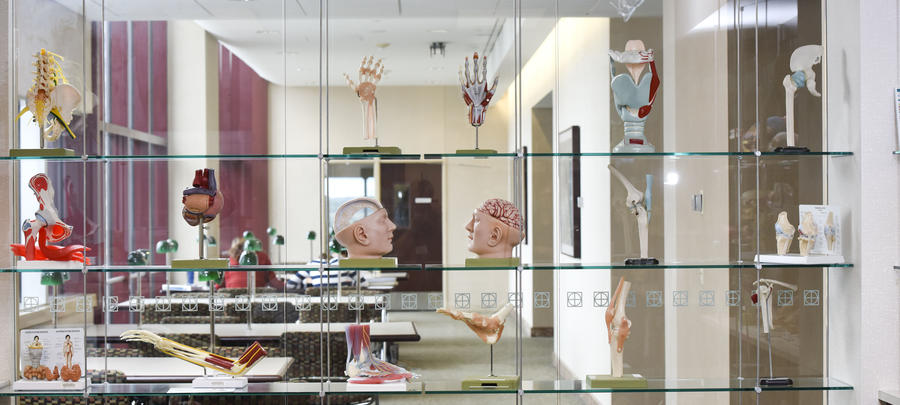Early Assurance Program in Occupational Therapy
UMR’s Early Assurance Program in Occupational Therapy Doctorate (OTD) is designed to provide a pathway for students to gain early admission to the program in Occupational Therapy. UMR’s Early Assurance OTD collaboration with the University of Minnesota Occupational Therapy program is designed for incoming first-year students.
Students will apply for admission to UMR’s undergraduate Bachelor of Science in Health Sciences (BSHS) program and complete additional questions on the application for the Early Assurance Program in Occupational Therapy Doctorate.
Students complete their undergraduate BSHS degree at UMR, working with their Student Success Coach to ensure completion of all prerequisites for the OTD program. In their fourth year, students complete a simplified Occupational Therapy Centralized Application Service (OTCAS) application to be formally admitted into the OTD program.
- Conditional admission to the University of Minnesota OTD program, pending the completion of all program requirements.
- Access to occupational therapy program advisors to assist with course and extracurricular planning.
- A faculty mentor.
- A current occupational therapy student mentor.
- Meetings on topics such as occupational therapy career exploration (practice areas), study skills, being a first generation college student, etc.
- Fee waivers provided when applying to the professional program.
- Invitations to occupational therapy community events.
- Students complete their undergraduate BSHS degree at UMR, working with their Success Coach to ensure completion of all requirements for the OTD program, which include:
- Successfully complete the BSHS degree requirements.
- Complete all occupational therapy program prerequisite courses (that were required at the time of admission to the professional program) at UMR or UMTC with a minimum grade of B-; with permission, up to a maximum of two courses can be taken at another institution (not including credits transferred in as an NHS).
- Maintain a cumulative GPA of 3.5 or higher.
- Maintain a full-time course load each semester.
- Meet once per semester with a pre-occupational therapy advisor.
- Submit simplified OTCAS application by September 1 in the year prior to entering the OTD program.
- After graduating from UMR, students complete their OTD degree in nine semesters with the University of Minnesota Occupational Therapy program.
Incoming undergraduate students must apply by December 1 as a first-year student for admission to UMR’s undergraduate Bachelor of Science in Health Sciences program and complete a small number of additional application questions for the Early Assurance Program in Occupational Therapy Doctorate (OTD).
Applicants will need to submit answers to the following questions:
1. How have your personal, academic, or employment/ volunteer experiences led you to develop an interest in Occupational Therapy?
2. With the goal of meeting the needs of a multicultural society, how will your personal characteristics, cultural background, values and experiences enrich the educational experiences of other OT students in the program? What impact do you hope to make in the program and profession?
3. On a scale of 1-10 (with 10 being extremely comfortable and skilled), rate your comfort level and skills working with people who are different from yourself - the old or very young, persons of different cultures or backgrounds, persons with serious physical or mental illnesses. Explain why you rated yourself as you did.
4. What values do you think are important when working with people? How do you reflect those values in your daily life?
5. Please give an example of a stressful situation you were involved with while in high school or later. Explain how you managed the situation. What strategies did you use to manage the stress and pressure of the situation? What learning or growth did you experience? Please do not include actual names or confidential information in your examples.
6. Rate your level of fluency in a second language, including ASL. If you speak multiple languages, please refer to the language you speak most fluently.
Answer:
- Native comprehension ability
- Proficient
- Intermediate
- Beginner
- No second language
7. Describe a situation where you used your second language and communication skills to engage more effectively with another person or group.
8. Please indicate any of the below programs that you have participated in:
- TRIO - Upward Bound or Upward Bound Math/Science
- Health Professions Opportunities Grant (HPOG)
- College Possible
- Other: please specify __________________
